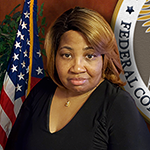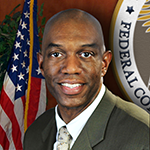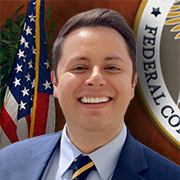
"In the very first sentence of the Communications Act, Congress directs the Federal Communications Commission to help make communications services available to 'all the people of the United States … without discrimination on the basis of race, color, religion, national origin, or sex.' This language is not new. But it is time to address it with new urgency." – FCC Chairwoman Jessica Rosenworcel
Broadband Access Experience Form
Share your unique experiences and challenges in obtaining broadband internet access. By sharing your broadband access stories, you will help the FCC to identify barriers experienced by historically unserved and underserved communities and inform the work of the Task Force.
Listening Sessions
The Task Force held a series of listening sessions seeking first-hand knowledge about challenges, barriers and experiences as the FCC works to ensure equal access to broadband. More information is available below:
Topeka, KS - Oct. 5, 2023
New York City - Sept. 29, 2023
Gallaudet U., Washington, DC - Sept. 14, 2023
Event Details & Public Notice
Transcript: Word | PDF
Baltimore - Mar. 28, 2023
Los Angeles - Feb. 21, 2023
Everyone, regardless of where they live and who they are, needs access to robust high speed broadband services for 21st century success. Where broadband networks get built shouldn't be determined by the income, race, ethnicity, or religion of the communities they will serve. To promote equal access, the Infrastructure Investment and Jobs Act requires the FCC to create rules and policies to address digital discrimination and redlining.
Chairwoman Jessica Rosenworcel announced the formation of a cross-agency Task Force to Prevent Digital Discrimination that focused on creating rules and policies to combat digital discrimination and to promote equal access to broadband throughout the U.S., regardless of zip code, income level, ethnicity, race, religion, or national origin.
Congress also directed the FCC to develop model policies and best practices state and local governments could adopt to help prevent digital discrimination in their communities. The Task Force also oversaw this important work. Additionally, Congress has asked the FCC to review its consumer complaint process. The Task Force is working to improve the way the agency seeks feedback from consumers who may be facing digital discrimination in their communities.
On February 1, 2024, a summary of the Preventing Digital Discrimination FNPRM was published in the Federal Register. Comments are due on or before March 4, 2024, and reply comments are due on or before April 1, 2024.
At the Commission's Open Meeting on November 15, 2023, the FCC approved rules to prevent and eliminate digital discrimination.
The Report and Order takes the next step in the Commission's efforts to promote equal access to broadband internet access service, a service that is critical to virtually every aspect of life in our country and to the U.S. economy. To implement section 60506 of the Infrastructure Investment and Jobs Act of 2021, the Commission adopted rules to establish a framework to facilitate equal access to broadband internet access service by preventing digital discrimination of access to that service based on income level, race, ethnicity, color, religion and national origin. A Further Notice of Proposed Rulemaking proposes and seeks comment on certain affirmative measures to facilitate our efforts to prevent digital discrimination of access.
At the FCC's March 16, 2022 Open Meeting, the Commission approved a Notice of Inquiry to start a proceeding (GN Docket No. 22-69) on these initiatives, which must be completed by November 2023 as directed by Congress in the Infrastructure Investment and Jobs Act. At the FCC's December 21, 2022 Open Meeting, the Commission Approved a Notice of Proposed Rulemaking (NPRM), and announced the dates for the NPRM's comment cycle on January 20, 2023. NPRM comments were due on or before February 21, 2023. The reply comment period was extended to April 20, 2023. (Search for GN Docket No. 22-69 in the FCC's Electronic Filing System.)
The Leadership Team

D'wana Terry continues to serve as Special Advisor to Chairwoman Rosenworcel, where she advises the Chairwoman on work the agency can do to identify and redress inequities in the FCC's policies and programs, and Director of the FCC's Office of Workplace Diversity. The Office of Workplace Diversity develops, coordinates, evaluates, and recommends to the Commission policies, programs, and practices that foster a diverse workforce, and promotes and ensures equal employment opportunity (EEO) for all employees and applicants regardless of race, color, sex, national origin, religion, age, disability, or sexual preference. In addition, D'wana has held several senior leadership positions in the Wireline Competition Bureau, the Wireless Telecommunications Bureau, and the Consumer and Governmental Affairs Bureau.
D'wana received her J.D. degree from the University of Virginia School of Law and her B.A. degree with a major in International Affairs and Mathematics from Lafayette College.

Sanford S. Williams joins the Task Force from the Office of the Chairwoman, whom he advises on work the agency can do to identify and expand opportunities for communities that have been historically underserved while also serving as a Deputy Managing Director of the FCC. Sanford has worked in various roles at the FCC since 1999. He also worked as an attorney for Womble, Carlyle, Sandridge & Rice and currently teaches at UCLA School of Law. Sanford serves as a member of the Federal Communications Bar Association Executive Committee.
At the age of 15, Sanford enrolled at Cornell University, where he earned an undergraduate degree in operations research and industrial engineering and a Master's in Business Administration from the Johnson School of Management. He earned his law degree from the University of Virginia School of Law where he was a member of the Virginia Law Review.

Alejandro Roark is Chief of the Consumer and Governmental Affairs Bureau (CGB) which develops and implements the commission's consumer policies, including disability access. CGB serves as the public face of the commission through outreach and education, is responsible for responding to consumer inquiries and complaints, and maintains collaborative partnerships with state, local and Tribal governments. Prior to joining the FCC, Alejandro led a CEO roundtable of national Latino civil rights organizations working in partnership to promote access, adoption, and the full utilization of technology and telecommunications resources by the Latino community across the United States.
Alejandro received his Master's in Public Administration with a focus on applied politics, and his B.A. degree in Interdisciplinary Studies: Communication, Legal Institutions, Economics, and Government from American University.
Contact the Team
We want to hear from you. To request a meeting with the Task Force Team, click the "Request a Meeting" button. Thank you.
News Media Contacts
Paloma Isabel Perez
FCC Press Secretary
paloma.perez@fcc.gov
Office of Media Relations
mediarelations@fcc.gov
202-418-0500
Task Force Team
Consumer and Governmental Affairs Bureau
- James Brown
- Aliza Katz
Enforcement Bureau
- Jolina Cuaresma
- Traci Randolph
Media Bureau
- Jamila-Bess Johnson
Office of Economics and Analytics
- Joanna Fister
Office of Communications Business Opportunities
- Joycelyn James
Office of General Counsel
- Malena Barzilai
Wireline Competition Bureau
- Allison Baker
- Rashann Duvall
- Kiara Ortiz
Wireless Telecommunications Bureau
- Morasha Younger
Headlines
- Comment Dates Announced for Preventing Digital Discrimination FNPRM (2/2/24)
- FCC Adopts Rules to Prevent and Eliminate Digital Discrimination (11/15/23)
- FCC Will Vote on Rules to Prevent and Eliminate Digital Discrimination at Nov. 15, 2023 Open Meeting (10/24/23)
- Reply Comment Period for NPRM Extended (3/17/23)
- FCC Task Force to Hold Regional Listening Sessions in Baltimore, Md. (3/15/23)
- FCC Task Force Launches Regional Listening Sessions in Los Angeles, California (2/15/23)
- FCC Announces New Outreach for Consumer Stories about Broadband Access (1/25/23)
- Comment Cycle for Preventing Digital Discrimination NPRM Announced, (1/20/23)
- Notice of Proposed Rulemaking to Combat Digital Discrimination (12/22/22)
- FCC Takes Next Steps to Combat Digital Discrimination (12/21/22)
- Draft Notice of Proposed Rulemaking (11/30/22)
- FCC Initiates Inquiry on Preventing Digital Discrimination (3/17/22)
- FCC Seeks Input on How to Combat Digital Discrimination (3/16/22)
- Draft Notice of Inquiry: Preventing Digital Discrimination in Broadband Access (2/23/22)
- Chairwoman Rosenworcel Announces Cross-Agency Task Force to Prevent Digital Discrimination (2/8/22)